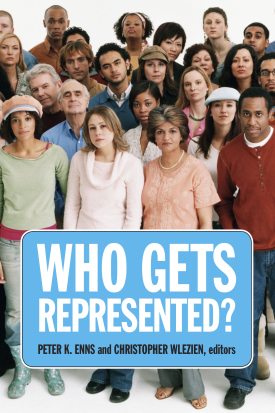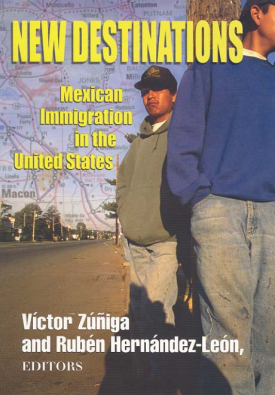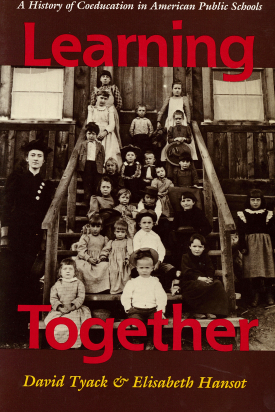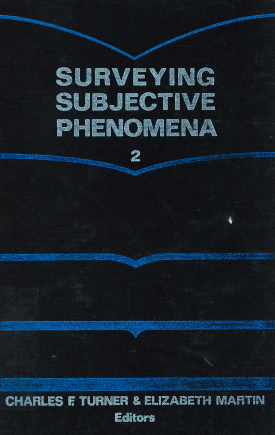The long-running rise in economic inequality in the U.S. is sometimes framed as a threat that the poor will fall further and further behind the rest of society. But in fact, most of the increase in inequality has occurred at the top of the distribution, not the bottom—it is more a matter of the rich pulling away from everyone else rather than the poor falling behind. And, within the high-income group, it is those at the very top who have made the biggest gains.
Since 2006, the last time Congress failed to pass comprehensive immigration reform, state and local authorities have increasingly taken immigration law and enforcement into their own hands. While these new regulations cover a broad spectrum of immigration reform, many are notable for their anti-immigrant leanings, including laws banning landlords from renting to undocumented immigrants and “English-only” ordinances.
Nearly a half century after the civil rights movement, race remains a significant predictor of income, wealth, employment, health, educational attainment, and a number of other social and economic outcomes. In all of these areas African Americans and other minorities lag behind whites, which poses serious issues not only for these group members but for the overall health of American democracy. While the existence of these racial disparities is well documented, the causes of their persistence remain a vexing puzzle.

Who Gets Represented?
About This Book
An investigation of policy preferences in the U.S. and how group opinion affects political representation.
While it is often assumed that policymakers favor the interests of some citizens at the expense of others, it is not always evident when and how groups’ interests differ or what it means when they do. Who Gets Represented? challenges the usual assumption that the preferences of any one group—women, African Americans, or the middle class—are incompatible with the preferences of other groups. The book analyzes differences across income, education, racial, and partisan groups and investigates whether and how differences in group opinion matter with regard to political representation.
Part I examines opinions among social and racial groups. Relying on an innovative matching technique, contributors Marisa Abrajano and Keith Poole link respondents in different surveys to show that racial and ethnic groups do not, as previously thought, predictably embrace similar attitudes about social welfare. Katherine Cramer Walsh finds that, although preferences on health care policy and government intervention are often surprisingly similar across class lines, different income groups can maintain the same policy preferences for different reasons. Part II turns to how group interests translate into policy outcomes, with a focus on differences in representation between income groups. James Druckman and Lawrence Jacobs analyze Ronald Reagan’s response to private polling data during his presidency and show how different electorally significant groups—Republicans, the wealthy, religious conservatives—wielded disproportionate influence on Reagan’s policy positions. Christopher Wlezien and Stuart Soroka show that politicians’ responsiveness to the preferences of constituents within different income groups can be surprisingly even-handed. Analyzing data from 1876 to the present, Wesley Hussey and John Zaller focus on the important role of political parties, vis-à-vis constituents’ preferences, for legislators’ behavior.
Who Gets Represented? upends several long-held assumptions, among them the growing conventional wisdom that income plays in American politics and the assumption that certain groups will always—or will never—have common interests. Similarities among group opinions are as significant as differences for understanding political representation. Who Gets Represented? offers important and surprising answers
to the question it raises.
PETER K. ENNS is assistant professor of government at Cornell University.
CHRISTOPHER WLEZIEN is professor of political science at Temple University.
CONTRIBUTORS: Marisa Abrajano, Yosef Bhatti, James N. Druckman, Christopher Ellis, Robert S. Erikson, Martin Gilens, David A. Hopkins, Wesley Hussey, Lawrence R. Jacobs, Keith T. Poole, Elizabeth Rigby, Stuart N. Soroka, James A. Stimson, Laura Stoker, Joseph Daniel Ura, Katherine Cramer Walsh, Gerald C. Wright, John Zaller.
Related Events & Media
RSF Journal
View Book Series
Sign Up For Our Mailing List
Apply For Funding

Social Contracts Under Stress
About This Book
The years following World War II saw a huge expansion of the middle classes in the world's industrialized nations, with a significant part of the working class becoming absorbed into the middle class. Although never explicitly formalized, it was as though a new social contract called for government, business, and labor to work together to ensure greater political freedom and more broadly shared economic prosperity. For the most part, they succeeded. In Social Contracts Under Stress, eighteen experts from seven countries examine this historic transformation and look ahead to assess how the middle class might fare in the face of slowing economic growth and increasing globalization.
The first section of the book focuses on the differing experiences of Germany, Britain, France, the United States, and Japan as they became middle-class societies. The British working classes, for example, were slowest to consider themselves middle class, while in Japan by the 1960s, most workers had abandoned working-class identity. The French remain more fragmented among various middle classes and resist one homogenous entity. Part II presents compelling evidence that the rise of a huge middle class was far from inclusive or free of social friction. Some contributors discuss how the social contract reinforced long-standing prejudices toward minorities and women. In the United States, Ira Katznelson writes, Southern politicians used measures that should have promoted equality, such as the GI bill, to exclude blacks from full access to opportunity. In her review of gender and family models, Chiara Saraceno finds that Mediterranean countries have mobilized the power of the state to maintain a division of labor between men and women. The final section examines what effect globalization might have on the middle class. Leonard Schoppa's careful analysis of the relevant data shows how globalization has pushed "less skilled workers down and more skilled workers up out of a middle class that had for a few decades been home to both." Although Europe has resisted the rise of inequality more effectively than the United States or Japan, several contributors wonder how long that resistance can last.
Social Contracts Under Stress argues convincingly that keeping the middle class open and inclusive in the face of current economic pressures will require a collective will extending across countries. This book provides an invaluable guide for assessing the issues that must be considered in such an effort.
OLIVIER ZUNZ is Commonwealth Professor of History, University of Virginia.
LEONARD SCHOPPA is associate professor in the Woodrow Wilson Department of Government and Foreign Affairs, University of Virginia.
NOBUHIRO HIWATARI is professor of political science at the University of Tokyo.
Download
RSF Journal
View Book Series
Sign Up For Our Mailing List
Apply For Funding

New Destinations
About This Book
Mexican immigration to the United States—the oldest and largest immigration movement to this country—is in the midst of a fundamental transformation. For decades, Mexican immigration was primarily a border phenomenon, confined to Southwestern states. But legal changes in the mid-1980s paved the way for Mexican migrants to settle in parts of America that had no previous exposure to people of Mexican heritage. In New Destinations, editors Víctor Zúñiga and Rubén Hernández-León bring together an inter-disciplinary team of scholars to examine demographic, social, cultural, and political changes in areas where the incorporation of Mexican migrants has deeply changed the preexisting ethnic landscape.
New Destinations looks at several of the communities where Mexican migrants are beginning to settle, and documents how the latest arrivals are reshaping—and being reshaped by—these new areas of settlement. Contributors Jorge Durand, Douglas Massey, and Chiara Capoferro use census data to diagram the historical evolution of Mexican immigration to the United States, noting the demographic, economic, and legal factors that led recent immigrants to move to areas where few of their predecessors had settled. Looking at two towns in Southern Louisiana, contributors Katharine Donato, Melissa Stainback, and Carl Bankston III reach a surprising conclusion: that documented immigrant workers did a poorer job of integrating into the local culture than their undocumented peers. They attribute this counterintuitive finding to documentation policies, which helped intensify employer control over migrants and undercut the formation of a stable migrant community among documented workers. Brian Rich and Marta Miranda detail an ambivalent mixture of paternalism and xenophobia by local residents toward migrants in Lexington, Kentucky. The new arrivals were welcomed for their strong work ethic so long as they stayed in “invisible” spheres such as fieldwork, but were resented once they began to take part in more public activities like schools or town meetings. New Destinations also provides some hopeful examples of progress in community relations. Several chapters, including Mark Grey and Anne Woodrick’s examination of a small Iowa town, point to the importance of dialogue and mediation in establishing amicable relations between ethnic groups in newly multi-cultural settings.
New Destinations is the first scholarly assessment of Mexican migrants’ experience in the Midwest, Northeast, and deep South—the latest settlement points for America’s largest immigrant group. Enriched by perspectives from demographers, anthropologists, sociologists, folklorists, and political scientists, this volume is an essential starting point for scholarship on the new Mexican migration.
VÍCTOR ZÚÑIGA is dean of the School of Education and Humanities at the Universidad de Monterrey.
RUBÉN HERNÁNDEZ-LEÓN is assistant professor of sociology at the University of California at Los Angeles.
CONTRIBUTORS: Ana Maria Aragones, Carl L. Bankston III, Chiara Capoferro, Miguel A. Carranza, Jasney Cogua, Katharine M. Donato, Timothy J. Dunn, Jorge Durand, Lourdes Gouveia, Mark A. Grey, David C. Griffith, Douglas S. Massey, Marta Miranda, Brian L. Rich, George Shivers, Debra Lattanzi Shutika, Robert Courtney Smith, Melissa Stainback, Anne C. Woodrick.
RSF Journal
View Book Series
Sign Up For Our Mailing List
Apply For Funding

Trust in the Law
About This Book
Public opinion polls suggest that American's trust in the police and courts is declining. The same polls also reveal a disturbing racial divide, with minorities expressing greater levels of distrust than whites. Practices such as racial profiling, zero-tolerance and three-strikes laws, the use of excessive force, and harsh punishments for minor drug crimes all contribute to perceptions of injustice. In Trust in the Law, psychologists Tom R. Tyler and Yuen J. Huo present a compelling argument that effective law enforcement requires the active engagement and participation of the communities it serves, and argue for a cooperative approach to law enforcement that appeals to people's sense of fair play, even if the outcomes are not always those with which they agree.
Based on a wide-ranging survey of citizens who had recent contact with the police or courts in Oakland and Los Angeles, Trust in the Law examines the sources of people's favorable and unfavorable reactions to their encounters with legal authorities. Tyler and Huo address the issue from a variety of angles: the psychology of decision acceptance, the importance of individual personal experiences, and the role of ethnic group identification. They find that people react primarily to whether or not they are treated with dignity and respect, and the degree to which they feel they have been treated fairly helps to shape their acceptance of the legal process. Their findings show significantly less willingness on the part of minority group members who feel they have been treated unfairly to trust the motives to subsequent legal decisions of law enforcement authorities.
Since most people in the study generalize from their personal experiences with individual police officers and judges, Tyler and Huo suggest that gaining maximum cooperation and consent of the public depends upon fair and transparent decision-making and treatment on the part of law enforcement officers. Tyler and Huo conclude that the best way to encourage compliance with the law is for legal authorities to implement programs that foster a sense of personal involvement and responsibility. For example, community policing programs, in which the local population is actively engaged in monitoring its own neighborhood, have been shown to be an effective tool in improving police-community relationships.
Cooperation between legal authorities and community members is a much discussed but often elusive goal. Trust in the Law shows that legal authorities can behave in ways that encourage the voluntary acceptance of their directives, while also building trust and confidence in the overall legitimacy of the police and courts.
TOM R. TYLER is professor of psychology at New York University.
YUEN J. HUO is professor of psychology at the University of California, Los Angeles
A Volume in the Russell Sage Foundation Series on Trust
RSF Journal
View Book Series
Sign Up For Our Mailing List
Apply For Funding

Learning Together
About This Book
Winner of the 1991 Critics' Choice Award from the American Educational Studies Association
Winner of the 1991 Outstanding Book Award from the American Educational Research Association
Now available in paperback, this award-winning book provides a comprehensive history of gender policies and practices in American public schools. David Tyack and Elisabeth Hansot explore the many factors that have shaped coeducation since its origins. At the very time that Americans were creating separate spheres for adult men and women, they institutionalized an education system that brought boys and girls together. How did beliefs about the similarities and differences of boys and girls shape policy and practice in schools? To what degree did the treatment of boys and girls differ by class, race, region, and historical period? Debates over gender policies suggest that American have made public education the repository of their hopes and anxieties about relationships between the sexes. Thus, the history of coeducation serves as a window not only on constancy and change in gender practices in the schools but also on cultural conflicts about gender in the broader society.
"Learning Together presents a rich and exhaustive search through [the] 'tangled history' of gender and education that links both the silences and the debates surrounding coeducation to the changing roles of women and men in our society....It is the generosity and capaciousness of Tyack and Hansot's scholarship that makes Learning Together so important a book." —Science
DAVID TYACK is Vida Jacks Professor of Education at Stanford University.
ELISABETH HANSOT is senior lecturer in political science at Stanford University.
RSF Journal
View Book Series
Sign Up For Our Mailing List
Apply For Funding

Surveying Subjective Phenomena, Volume 2
About This Book
In January 1980 a panel of distinguished social scientists and statisticians assembled at the National Academy of Sciences to begin a thorough review of the uses, reliability, and validity of surveys purporting to measure such subjective phenomena as attitudes, opinions, beliefs, and preferences. This review was prompted not only by the widespread use of survey results in both academic and non-academic settings, but also by a proliferation of apparent discrepancies in allegedly equivalent measurements and by growing public concern over the value of such measurements.
This two-volume report of the panel’s findings is certain to become one of the standard works in the field of survey measurement. Volume I summarizes the state of the art of surveying subjective phenomena, evaluates contemporary measurement programs, examines the uses and abuses of such surveys, and candidly assesses the problems affecting them. The panel also offers strategies for improving the quality and usefulness of subjective survey data. In volume II, individual panel members and other experts explore in greater depth particular theoretical and empirical topics relevant to the panel’s conclusions.
For social scientists and policymakers who conduct, analyze, and rely on surveys of the national state of mind, this comprehensive and current review will be an invaluable resource.
CHARLES F. TURNER is professor of Applied Social Research at the City University of New York.
ELIZABETH MARTIN is research associate at the National Research Council.
CONTRIBUTORS: Robert P. Abelson, Barbara A. Bailar, Marian Ballard, Theresa J. Demaio, Otis Dudley Duncan, Baruch Fischhoff, Lester R. Frankel, William H. Kruskal, Michael B. Mackuen, Catherine Marsch, Elizabeth Martin, Sara B. Nerlove, Howard Schuman, Tom W. Smith, Charles F. Turner
Download
RSF Journal
View Book Series
Sign Up For Our Mailing List
Apply For Funding
Pagination
- Previous page
- Page 31
- Next page
